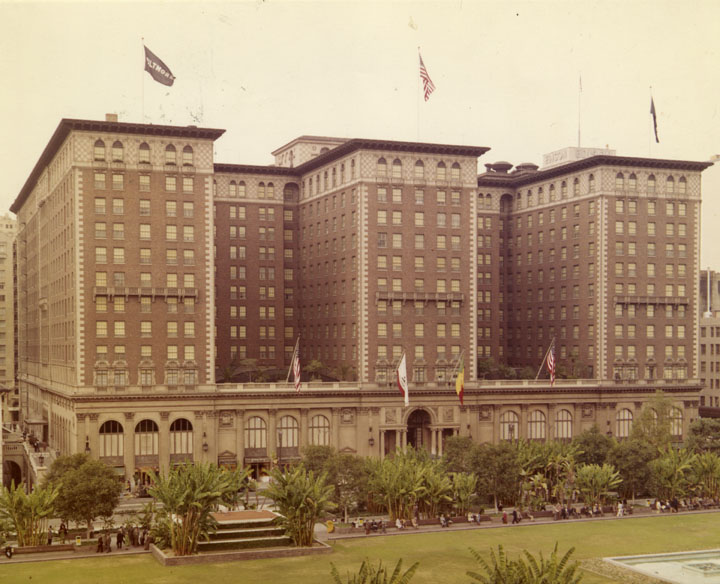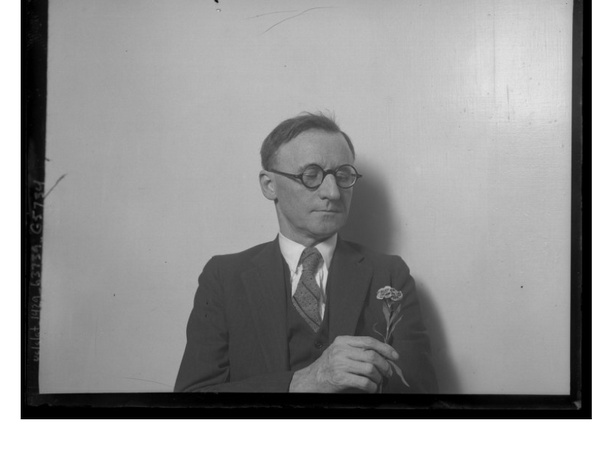Thomas told anyone who asked him that the last time he saw Grace was on February 21, 1925. They had stopped at a roadhouse, the Plantation Grill, for drinks and dancing. National Prohibition may have been the law, but finding a cocktail was easy if you wanted one.

Thomas saw a group of people enter the café and recognized a woman named Nina. He had known her for several years. He spent some time chatting with her. Thomas said that Grace became jealous, and they argued. Rather than make a public scene, they left the roadhouse and continued their argument in the car until they reached Western and Eighth Street, where they made up. Instead of calling it a night, they went to the Biltmore Hotel, for the orchestra and dancing.
When they arrived at the Biltmore, Grace excused herself to go to the ladies’ room. Thomas waited, but she never returned.
Thomas reported Grace missing, and he also hired a private investigator. He maintained Grace had left for Paris or New York to seek a divorce. According to Thomas, she carried with her $126,000 in Liberty bonds. Thomas said Grace would return when she was ready. Then he went on with his life as if nothing had happened.

A couple of days after Grace disappeared, Thomas asked Patrick to accompany him to the Beverly Glen cabin because he said he needed to pour a concrete floor in the cistern which he claimed was leaking. Patrick welcomed any activity that would distract him from worrying about his mother. He mixed and poured the cement while Thomas smoothed it out.
Over the next few weeks, Thomas arranged parties and other social events for Patrick to “keep his mind off things.” Among the guests at the soirees was Thomas’ attractive young office assistant, Dorothy Leopold.
When Grace’s father Frank first got word that she was missing, he felt in his gut that something horrible had happened to her. He wanted to force a confrontation with Thomas, so he filed a legal request to become Patrick’s guardian. If the guardianship request was intended to fluster Thomas, it failed. Thomas said that it was up to Patrick to choose a guardian.
Patrick didn’t want his grandfather to be his guardian, so he named an attorney he knew to take charge of his legal affairs until Grace returned. As a further slap in the face to his mother’s family, Patrick stated his preference was to live with his stepfather.
Weeks went by with no sign of Grace. Then Patrick began receiving letters from her with New York postmarks. In the letters, she said that her family was keeping her from Thomas and that they knew where she was. Patrick felt torn between two opposing forces, which left him in a state of inner turmoil. He loved his mother’s family, but Thomas was good to him. He had even bought him a new Chrysler.
By June, Grace’s family, joined by her friends from the Ebell Club and trust company officers from the bank, appealed to District Attorney Asa Keyes to launch a sweeping investigation.

On June 12th, an investigation into Grace’s mysterious disappearance, spearheaded by the D.A., kicked into high gear. Los Angeles Police Department officers interviewed residents of Beverly Glen. Among those interviewed were Donald Mead and Kenneth Selby. The boys related to police what they had witnessed that February night. If Thomas had been creeping around in the cabin in total darkness, people might have found it odd, but it didn’t make him guilty.
Adjacent to the Young cabin was a well which supplied water to several surrounding cabins. Using a gasoline pump, the residents drew the water and piped it to the surrounding cabins. Residents told police it had been an open well until February, when Dr. Young had sealed it with a concrete floor. They found it strange that the water, which had always been pure, emitted a foul stench after Dr. Young installed the concrete floor. One resident said, “The water never began to smell until a few months ago. No, we cannot use it, not even for shower baths or for dishwashing. It is slightly discolored and when drawn, a yellowish smelling sediment settles in it. We have no idea what caused this sudden change in the water.”
The number of questions surrounding the Beverly Glen cabin prompted the police to initiate a search. The cabin held several intriguing clues; a one-ounce bottle of Novocain secreted near the fireplace and bloodstains in a bedroom.
Prior to the search, Thomas made a cryptic statement: “I hold the key to this situation, and I have burned my bridges behind me.”
While many still had doubts about what had happened to Grace, District Attorney Asa Keyes was not among them: “I am as certain as I am sitting here that Mrs. Young is dead—that she has been murdered. By whom she was slain, we do not know. That we are trying to determine.”
Following their search of the cabin, authorities broke up the concrete in the cistern and made a gruesome discovery.
NEXT TIME: Grace is found.



